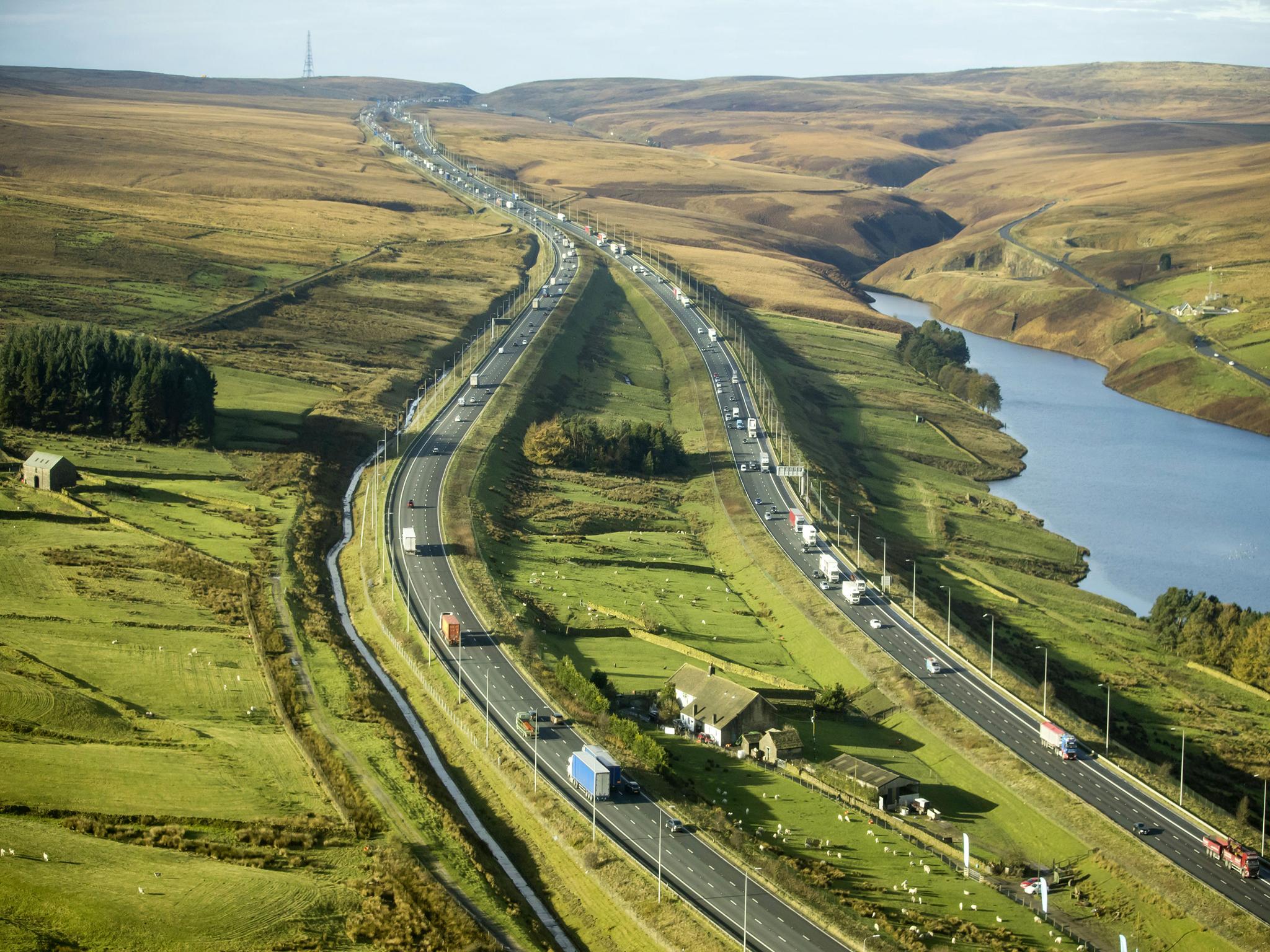House in the middle of M62 motorway to be transformed into 'wildlife haven'
Stott’s Hill Farm in Yorkshire will enable wildlife and meadows to thrive while operating as a commercial enterprise.

A farm situated in the middle of the M62 motorway is set to become a wildlife haven, as part of a new initiative to promote agricultural sustainability, wildlife biodiversity and water quality in the region.
Stott Hall Farm in Huddersfield, West Yorkshire, became famous in the 1960s when the M62 was built around it.
But now, the agricultural area – dubbed “Motorway Farm” – has joined the countywide Yorkshire Water Beyond Nature initiative, which is encouraging farms in the region to “connect with the land, water and wildlife around them”.
The farm, which is owned by Yorkshire Water, is a haven for particular species of birds, including twite, snipe and merlin birds. Despite its close proximity to the dual carriageway, Stotts Hall currently holds 900 ewes and 20 suckler cows on its 348 hectares of moorland.
Plans include the restoration of a peatland bog to lock carbon dioxide into the land to help reduce global warming.
The farm will also open brand new scientific and educational centres for environmental studies students, to carry out case studies on-site as part of their learning curriculum.
Specialists will also work to raise the water table of the moors in a bid to help minimise the flooding risk present in the valleys that surround the farm.
“Undeniably, hill farming in the Pennines has its challenges, such as with soil quality and inclement weather as well as our motorway location,” said farm manager Paul Thorpe to the Blackpool Gazette.

“However, we are confident that we can successfully combine a commercial livestock enterprise whilst also not only maintaining but improving this wonderful diverse habitat for future generations as part of the Beyond Nature vision,” he continued.
The farm was meant be knocked down to make way for the motorway but the land was considered too steep to build all six lanes of the carriageway on.
“Despite the farm sitting in the middle of a motorway, it is a classic upland farm with biodiversity interest, cultural and landscape value,” said Lisa Harrowsmith, a lead surveyor at Yorkshire Water.
“Paul and his family are really behind this new vision of how farming can evolve to embrace land diversification that enables things like wildlife, peatland and meadows to thrive whilst maintaining the farm as a successful commercial enterprise.”
Join our commenting forum
Join thought-provoking conversations, follow other Independent readers and see their replies
0Comments